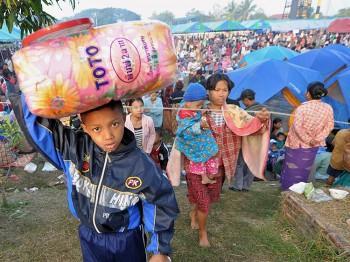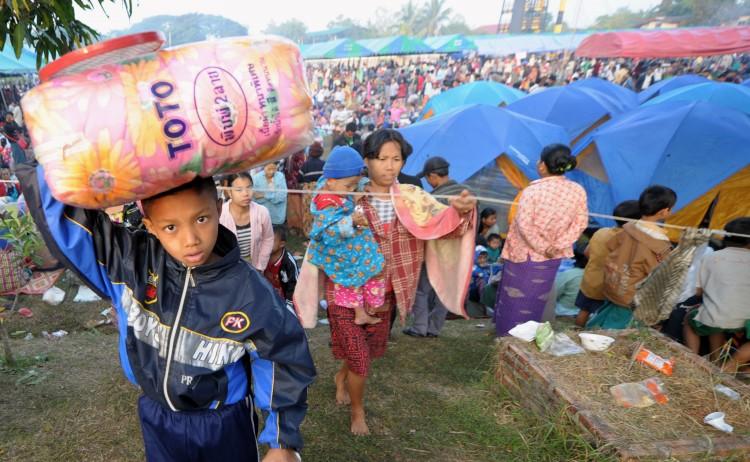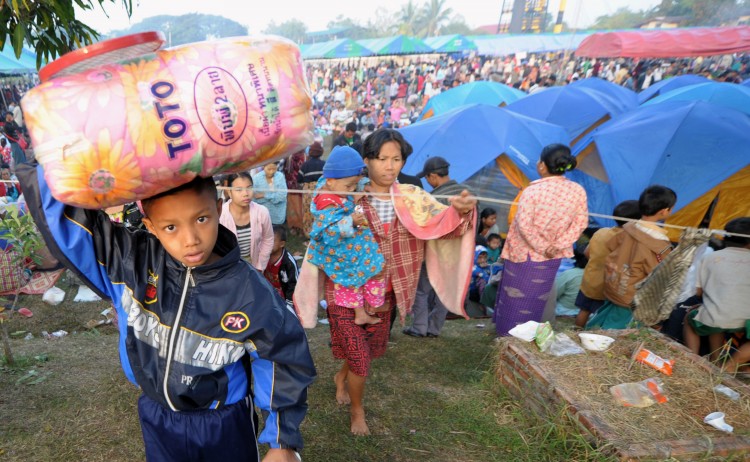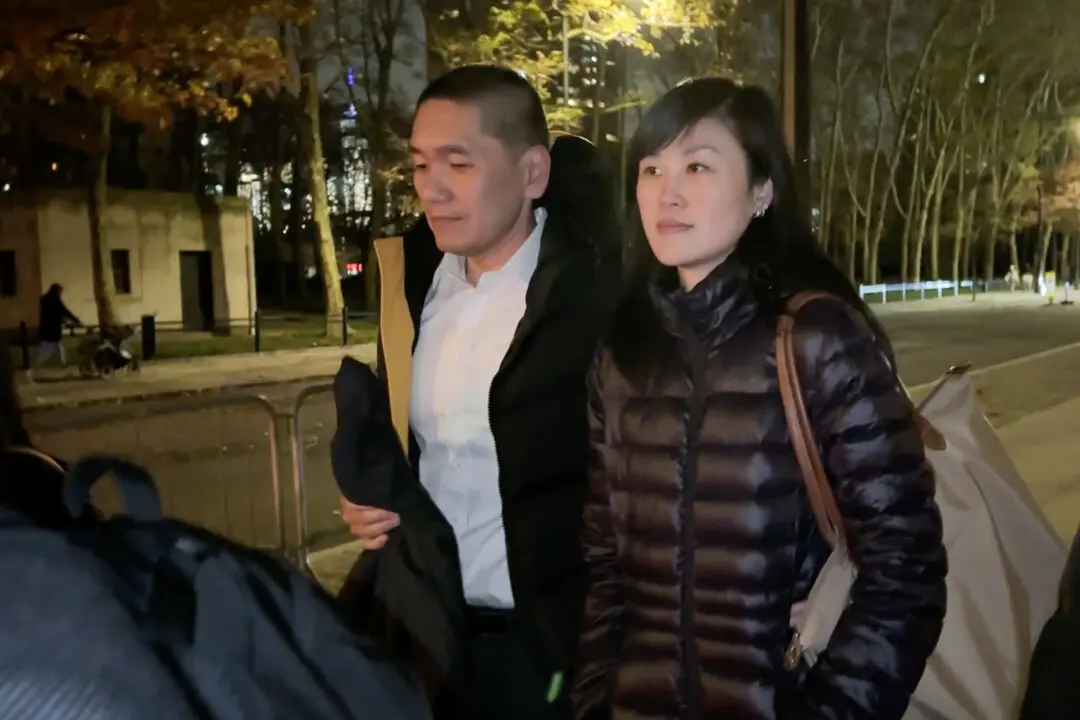Burmese Dissident Reporters Recognized on World Refugee Day
Many reporter refugees seek to continue their work from abroad, with a mission to reveal human rights abuses and provide good information for their compatriots back home.

A boy carries a bag as Myanmar refugees arrived in a temporary camp set up at a police base on the border town of Mae Sot on November 9, 2010. PORNCHAI KITTIWONGSAKUL/AFP/Getty Images
|Updated:





